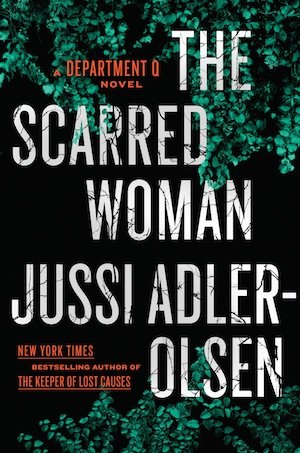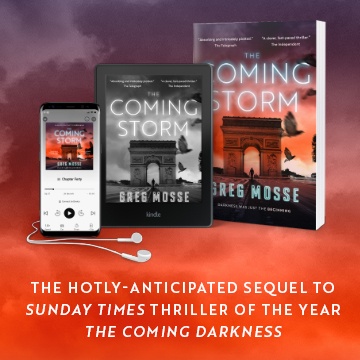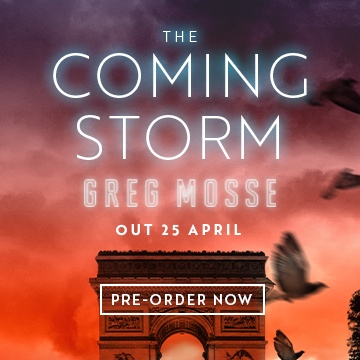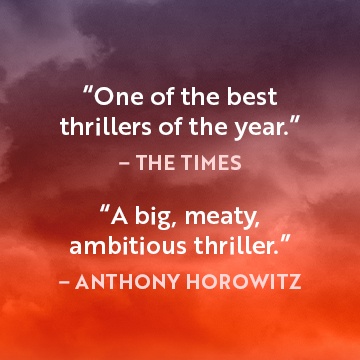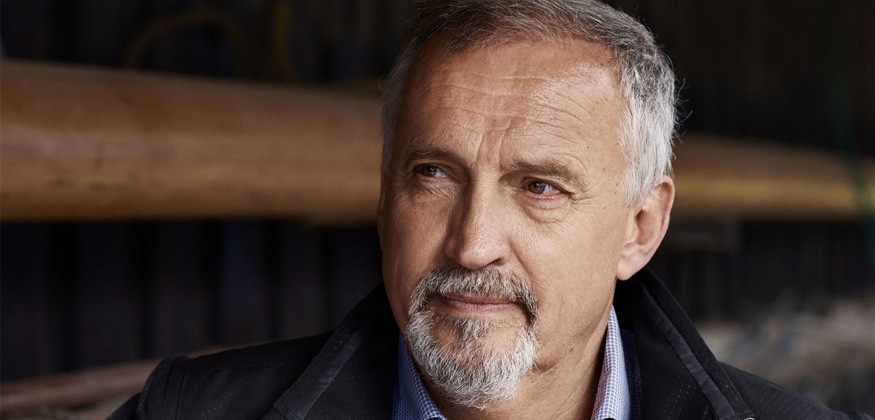 The Department Q series by Danish author Jussi Adler-Olsen is one of the best going. This division of the Copenhagen police force deals with the cold cases other detectives just couldn’t solve, all over Denmark. Situated in their basement office they’re seen as misfits, led by the miserably forthright Carl Mørck. The books are populated by equally fascinating villains, often explore the country’s social issues, and are so popular that an on-going series of Danish movies is based on them. With the seventh book in the series, The Scarred Woman, about to arrive in English, we finally managed to track down the author and interrogate him…
The Department Q series by Danish author Jussi Adler-Olsen is one of the best going. This division of the Copenhagen police force deals with the cold cases other detectives just couldn’t solve, all over Denmark. Situated in their basement office they’re seen as misfits, led by the miserably forthright Carl Mørck. The books are populated by equally fascinating villains, often explore the country’s social issues, and are so popular that an on-going series of Danish movies is based on them. With the seventh book in the series, The Scarred Woman, about to arrive in English, we finally managed to track down the author and interrogate him…
What did you do before becoming a crime author, and what made you decide to start writing crime books?
I have tried quite a lot. I have been a secondhand comics dealer, composer of film music, coordinating manager in the Danish peace movement, chairman of solar and digital companies, I have been head of an international publishing house and I have renovated a number of houses…
Every field has been an entire education in itself, and I have had fun doing all the different things I’ve done. But subsequently, another wish to find a fixed place to stand with the following prerequisites arose: the working hours had to be flexible and voluntary, the job needed to have projects that were studies within themselves, and I needed to be able to complete them within a couple of years at the most so that I always felt challenged. It had to be a job with no retiring age where you could work no matter where in world you were situated. Not many jobs besides being a writer fulfill these demands. From very early on I knew that I was good at writing, a lot of writing competitions and a couple of wonderful Danish teachers told me that, but it was not until I became a publisher that I really realised which books needed to be written.
Your new book The Scarred Woman (Selfies) comes out in English in September. What are crime fiction lovers going to love about it?
For the crime fiction reader in general I hope they will enjoy the combination of a thriller and a commentary on one of the issues that our society, certainly the Danish society, is faced with nowadays. A trend which calls for focusing on the ego – ‘me, me, me’ – rather than empathy, something which I believe is a necessity in any civilised society, and something which regretfully becomes less and less prevalent in society.
For those who already know the Department Q series, I believe that my readers will be caught up in Rose’s story. Rose is one of the key characters in my series and she is the first one who becomes truly three-dimensional. You get into her head and you learn more about her than ever before.
Tell us more about her, how she’s developed and what we’ll find out in the new book?
Ha, ha! I will not tell you what happens to her in this novel. But we know from the previous novels in the series that she has problems and they really come out in The Scarred Woman. When I was writing, I had to become Rose in my mind – I has to manifest myself as Rose in order to make what I wrote credible. And I tell you, she has some problems she needs to handle. It was very tough writing, not least because I love her so much. Her friends in Department Q become deeply affected by what they learn about Rose and do everything they can to help her.
Department Q isn’t just about misfits, it’s about people who’ve been hurt, changed by bad deeds done to them. Carl is in the same boat. However, the ambush and how Hardy became paralysed haven’t been visited so much in recent books. Can you tell us a bit more about that, and when and how you might be exploring it? Or if you aren’t going to, why not?
What a pleasure to get this question – just as I have hoped my readers would – you read this series as one long novel wanting to learn more about our friends and not least the ambush. I will certainly reveal what happened when Hardy was shot, but gradually. Right now, I am writing Q8 and in this novel I will reveal, if not all then at least a great deal of, Assad’s secrets. Q9 will disclose a lot of Carl’s secrets and Q10 will wrap up everything.
To what extent did you plan Department Q to be a large-scale series? How many ideas did you have lined up, for instance, when you put Keeper of Lost Causes (Mercy) to bed?
Before I wrote the first novel I wrote a synopsis of the entire series. I defined the main characters, although they have certainly developed during the writing process, and I wrote the synopsis to the long crime thriller – the story about the ambush. I also had a range of ideas for the stories that only cover one novel, but some of these have changed over time. One of the subjects was touched upon by another writer before I used it, and as I want my plots to be original I dropped that idea and found another.
When Jo Nesbo created Harry Hole, he imagined the character to be an amalgamation of Frank Miller’s Batman, and his old football coach. How did you invent Carl Mørck and what inspired Carl’s take on life and approach to policing?
Carl Mørck is a combination of Mr Mørk and of Carl. Mr Mørk was a patient of my father’s. He had murdered his wife and was a psychiatric patient. As a six-year-old I knew him as a very kind man. In this way, I learned at a very early stage that good and evil can easily be contained in one person.
As regards Carl – yes, he is partly myself – my christened name is Carl Valdemar Jussi Henry Adler-Olsen. One characteristic we share is a certain degree of laziness. I have always been embarrassed by this so I have always been quite diligent out of fear of indulging in my laziness. Basically, I envy Carl the ability to put his feet up and take a nap. As Carl, I find it easy to come up with creative ideas and we are both direct. We do not beat around the bush when having to get a message across. My personal experience has taught me that it makes lots of things easier to be honest, even when it is not welcome. Contrary to Carl I am diplomatic, but I envy him when he speaks plain truths directly to people.
 There’s not much humour in Scandinavian crime fiction, but you’re never afraid to pepper your books with dry wit and even some slapstick. Why is humour important to you? Do you feel it brings your writing closer to British or American crime?
There’s not much humour in Scandinavian crime fiction, but you’re never afraid to pepper your books with dry wit and even some slapstick. Why is humour important to you? Do you feel it brings your writing closer to British or American crime?
The Department Q series is covering a lot of grim subjects. Using humour serves several purposes. It creates a breathing space for the reader amongst the sometimes rather trying cases, it can build a bridge between our main characters when things get strained, and it can create a common understanding in the middle of the huge gap of political differences which prevail these days not only in Denmark but in the world at large. The humour in the text puts everything into perspective.
Humour is vital to me. It is said that the shortest distance between two people is a smile, but I think it is laughter. And with laughter you get the reader’s attention and goodwill, even in difficult matters. I like to think that it can bring any nationality closer together.
Which other crime authors have inspired you and why?
I have to say that as long as I have written crime thrillers I haven’t read other people’s work in this genre. I want to be confident that I have not been inspired by something they have thought of. Now to what I do read – I love absurd literature like Erlend Loe and Peter Bichel. The only books that I have read more than once are those of the great authors such as Steinbeck, Dickens and masters such as Hugo and Dumas. But basically, I am always curious to learn more – I love to be challenged. But of course, I used to read a lot of crime novels and Sjöwall & Wahlöö were an excellent read when they were first published and I thoroughly enjoyed reading authors like Ira Levin and Frederick Forsyth as well.
What’s next for Jussi Adler-Olsen?
Right now I am writing Q8 and I intend to complete the Department Q series before I embark on something else. Having said that I have a number of synopses that I look forward to working on once the Department Q series is completed.
The Scarred Woman is released in the US and the UK on 19 September, this time with the same title. To catch up with the series, read our complete guide to Department Q. US readers can pre-order here, UK readers using the buttons below.






